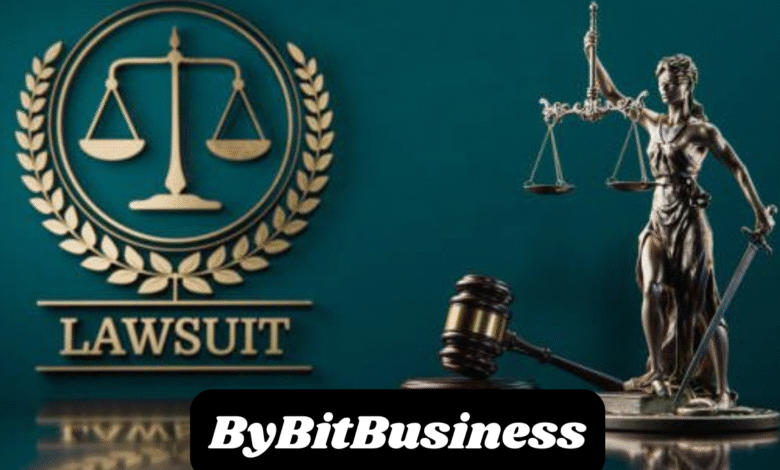Direct Fairways Lawsuit: A Comprehensive Examination

Understanding Direct Fairways and Its Business Model
Direct Fairways Lawsuit, a marketing and advertising company based in Arizona, gained considerable attention over the years for its role in producing advertising content specifically targeted at golf courses and businesses looking to connect with golf enthusiasts. The company positioned itself as a marketing partner that could help local businesses gain visibility by placing their ads in golf course guides and related materials. Many clients were small business owners, and the marketing promise was simple: high-value exposure in a niche, affluent market.
This business model revolved around selling ad space in printed scorecards, yardage books, tee signs, and other golf-related media. These products would then be distributed through golf courses across the country, theoretically allowing advertisers to connect with golfers, club members, and event attendees. The model sounded appealing, but over time, cracks began to show as more advertisers and former employees began raising complaints.
Genesis of Legal Troubles and the Lawsuit
The term “Direct Fairways lawsuit” started to emerge with increasing frequency around the mid-to-late 2010s and early 2020s. A growing number of allegations started to surround the company, primarily involving claims of misrepresentation, unethical sales practices, and failure to deliver on contractual promises. These claims came from a range of sources, including small business owners who bought advertising packages and former employees who took issue with internal operations.
One of the central issues raised in the legal complaints involved clients who claimed they had paid for services that were either never delivered or fell far below the quality promised at the time of sale. Some alleged that materials were never printed or distributed, or that they were printed in such limited quantities that the marketing campaign had negligible reach. These concerns laid the groundwork for potential claims of breach of contract, fraudulent misrepresentation, and deceptive business practices.
Employee Complaints and Internal Practices
Beyond the customers’ complaints, there were numerous concerns voiced by former employees. Some of these centered around the sales culture within Direct Fairways. Reports suggested a high-pressure sales environment where employees were allegedly trained to use misleading pitches. There were also claims of unpaid commissions, delayed payroll, and a lack of transparency regarding customer fulfillment.
These internal challenges started gaining attention on public forums, Glassdoor reviews, and through social media conversations. The convergence of customer dissatisfaction and employee unrest created a mounting public relations problem for the company and invited greater legal scrutiny.
Regulatory and Legal Action
As the noise around Direct Fairways grew louder, regulatory bodies and legal representatives began investigating the claims. The allegations potentially fell under several consumer protection statutes, both at the state and federal level. Plaintiffs sought remedies such as restitution, refunds, and in some cases, punitive damages. Various state attorneys general started receiving complaints, adding fuel to the notion that this was more than an isolated incident.
Although not all the legal actions against Direct Fairways rose to the level of a formal court proceeding, some did culminate in lawsuits filed by individual business owners or groups. These lawsuits accused the company of systematic deception and sought accountability for what many saw as a pattern of dishonesty.
The legal system took time to parse through these claims. In cases where sufficient documentation and evidence were presented—such as email correspondences, sales scripts, contracts, and testimonials—judgments or settlements were sometimes rendered in favor of the plaintiffs. However, legal action against a marketing company of this nature often hinged on subjective interpretations of contract fulfillment, making the outcomes varied and complex.
Impact on Clients and Businesses
The fallout from the lawsuit and surrounding complaints has been multifaceted. Many small business owners who had limited marketing budgets expressed that their losses, though individually modest, were particularly painful. Losing hundreds or thousands of dollars in marketing investments with no return can severely affect businesses operating on tight margins.
There was also a loss of trust in niche marketing services. Companies like Direct Fairways operate in a highly relationship-based industry, and when that trust is broken, it not only affects one business but also erodes confidence in similar advertising models. Small businesses became more cautious, demanding stronger contracts, clear deliverables, and verifiable distribution data before engaging with similar vendors.
Response and Public Image Management
In response to the rising criticisms, Direct Fairways issued statements at different times attempting to clarify their position. These statements typically reaffirmed their commitment to client satisfaction and emphasized the company’s history of successful campaigns. The company also purportedly made efforts to reach out to dissatisfied customers to resolve issues privately.
However, these actions were often seen as reactive rather than proactive. In an age where online reviews, complaints, and ratings can significantly influence a business’s reputation, these measures appeared to some as too little, too late. Public perception had already begun to tilt toward skepticism, and the shadow of the lawsuit further entrenched the negative sentiment.
Repercussions in the Marketing Industry
The Direct Fairways lawsuit and surrounding controversy served as a cautionary tale for the marketing and advertising industry. Especially within niche marketing, the need for transparency, accountability, and follow-through has never been greater. The industry as a whole has become more regulated, and companies are expected to demonstrate tangible metrics for success, such as impressions, distribution figures, or return on investment.
For marketing firms targeting specialized demographics—like golfers in this case—the onus is now on them to provide detailed proof of performance. Contracts are being rewritten to include clearer terms, more realistic delivery timelines, and avenues for client feedback and dispute resolution. The fallout has indirectly raised the bar for ethical standards across the board.
Future of Direct Fairways and Legal Outlook
Following the culmination of some of the legal proceedings, the future of Direct Fairways remains uncertain. While some businesses may recover from bad press, the cumulative effect of lawsuits, regulatory inquiries, and customer distrust often leaves a long-lasting impact. Direct Fairways may need to undergo a significant rebranding, overhaul its leadership, or implement wide-reaching operational changes to regain credibility.
From a legal standpoint, the precedent set by the lawsuits can inform future cases involving marketing misrepresentation. Judges and lawyers may reference the Direct Fairways case when evaluating the legitimacy of niche marketing services and assessing the expectations set forth during a sales pitch versus the actual outcomes.
Wider Implications for Consumers and Small Businesses
For small businesses, the Direct Fairways lawsuit is a wake-up call to be more vigilant when signing advertising contracts. It highlights the importance of doing due diligence, reading the fine print, and asking for proof of previous campaign performance before committing funds.
It also shows that legal recourse is available when a marketing service fails to deliver on its promises. While lawsuits can be time-consuming and costly, especially for small players, collective action and support from consumer protection organizations can sometimes lead to meaningful resolution.
In this case, many business owners shared their experiences on forums, reviewed the company publicly, and filed formal complaints, contributing to a broader movement that eventually brought the matter to legal light. This collective voice was critical in exposing what they saw as unethical business behavior and demanding accountability.
Conclusion
The Direct Fairways lawsuit represents a pivotal moment in the intersection of marketing practices, legal accountability, and consumer trust. What began as a marketing solution targeting a specific recreational demographic turned into a controversial subject marked by lawsuits, customer dissatisfaction, and legal scrutiny. It serves as a reminder that transparency, ethical sales practices, and contractual clarity are non-negotiable elements in today’s business landscape. As companies and clients move forward, the lessons from this case will likely influence how future marketing contracts are structured, sold, and enforced.
FAQs
What is the Direct Fairways lawsuit about?
The Direct Fairways lawsuit involves allegations that the company engaged in deceptive marketing practices, misrepresented services, and failed to deliver promised advertising content to clients.
Who filed the lawsuit against Direct Fairways?
Lawsuits were filed by individual business owners and clients who claimed they paid for advertising services that were not properly delivered or misrepresented.
Were there any employee complaints about Direct Fairways?
Yes, several former employees raised concerns about unethical sales practices, unpaid commissions, and a high-pressure work environment.
Has Direct Fairways responded to the allegations?
The company has issued some public statements and reportedly tried to resolve complaints privately with some customers, although critics say these responses have been insufficient.
What can small businesses learn from this lawsuit?
Small businesses should thoroughly vet marketing companies, Direct Fairways Lawsuit demand performance metrics, and ensure contracts are clear and enforceable before committing to ad spend.
Is Direct Fairways still in operation?
As of the most recent updates, Direct Fairways appears to be operational, though its public image and business practices have been significantly scrutinized due to ongoing controversies.

